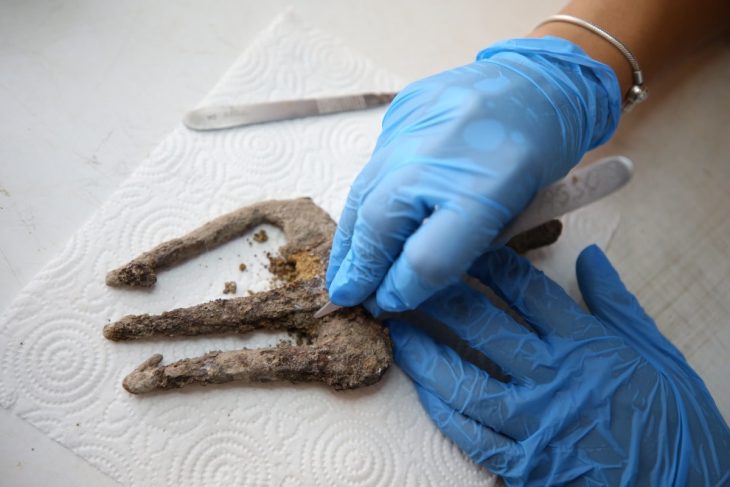The ancient coastal town of Assos in northwestern Turkey has unveiled another fascinating glimpse into its rich history with the recent discovery of an iron trident, believed to have been used for fishing, dating back to the 3rd or 4th century A.D. This remarkable find adds a new dimension to our understanding of ancient maritime practices in the Aegean region.
The iron trident was unearthed by a team of dedicated archaeologists during excavations at the Nymphaion, an elaborate fountain located on the eastern side of Assos’ ancient city center. Led by Nurettin Arslan, a professor of humanities and social sciences at Canakkale Onsekiz Mart University, the excavation efforts have received support from the Culture and Tourism Ministry and the Turkish Historical Society.
Expert restoration work was undertaken to carefully clear the trident of soil and oxidized agents, revealing its distinctive shape and purpose. Found amidst the collapsed vault of the Nymphaion, the trident’s intact state is a rarity, considering the rapid decay of iron-based artifacts in ancient environments.
Arslan expressed the significance of the discovery, noting that while such fishing tools are known from ancient depictions, finding an intact example in Assos is a notable achievement. He explained that these tridents were likely used by fishermen to catch large fish at sea, particularly when illuminated by torchlight during nighttime fishing expeditions.
The presence of ironworking evidence in Assos suggests that these fishing implements may have been locally produced, highlighting the region’s technological capabilities during ancient times. Assos, with its rich history dating back to the Bronze Age and founded by immigrants from Lesbos in the 7th century B.C., continues to yield archaeological treasures that illuminate the daily lives and practices of its ancient inhabitants.
The discovery of the iron trident not only adds to Assos’ archaeological wealth but also underscores the enduring connection between the town’s residents and the sea, a relationship that has persisted for thousands of years. As ongoing excavations and research shed further light on Assos’ past, each new find contributes to a deeper appreciation of the region’s cultural heritage and maritime heritage.
